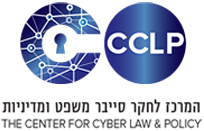 Hebrew University of Jerusalem
Hebrew University of Jerusalem
Tammy Katsabian is a PhD student at the law faculty of the Hebrew University. She is writing her thesis under the guidance of Prof. Guy Davidov. Her thesis focuses on the way the internet platform and virtual technology have influenced labour rights in a way that requires new understandings and redefinitions of basic concepts in this field, including fundamental workers’ rights. Her research is consisted of a series of articles focusing on the effects of the internet on three issues: the right to privacy of employees; working time; and freedom of association.
Tammy has an L.L.M degree from Yale Law School and Tel-Aviv University (cum laude) and an L.L.B degree from Bar Ilan University (cum laude). Alongside to her studies at the PhD program, Tammy is working as the academic advisor of the Women’s Rights at Work Clinic.
Abstract:
Employees’ Privacy in the Internet Age – AI and the Human Aspect
The internet age has created a crisis in the notion of employees’ privacy. The AI revolution, with its various new surveillance technologies, enables the employer to supervise her employees, at almost any time and in almost any place. Starting from the stage of being a candidate, and throughout the employment period, employees are constantly watched over, even in their personal time and space. Alongside that, AI enables the employer not only to collect information on the employee in various ways, but also to automatically process and analyze big data and to draw conclusions from it about the behavior and character of the employee.
This constant supervision, however, is possible also due to modifications in the behavior of individuals and society. Thus, in order to accurately grasp the modern privacy dilemma, I believe that we need to add a sociological dimension to the technological understandings on AI and big data and to explore how the internet age has urged the individual to “live in public” and the society to participate in a collective supervision over its members. Following this, the presentation will bring to the fore the sociological literature on internet and society. A gap between privacy in the books and privacy on the ground will be exposed, pointing especially to the paradox of people willingly sharing more and more information with others while at the same time wanting to keep it private (at least to some extent). These sociological insights shed a new light on the legal discourse.
So far attempts in the legal literature to deal with the modern privacy crisis have focused on creating flexible and contextual understanding of privacy (or its violation). This is indeed helpful to broaden the scope of privacy and include new phenomena, but in practice, at least in the context of the workplace, such legal structures are outdated, and in particular cannot provide a necessary degree of determinacy and predictability to employers and employees. Given the power imbalance in employment relations, such indeterminacy is likely to prove detrimental especially to employees, thus making it difficult to protect them against infringements of privacy (broadly conceived, including the right to a private life).
The presentation argues that this gap can be addressed by adding a procedural protection to the right to privacy, which is easier to implement. Three concrete proposals are advanced along these lines: mandating anonymous CVs before the interview stage (to prevent the screening of candidates at this preliminary stage based on “Googling”); creating incentives for developing workplace-specific privacy rules in cooperation with employee representatives; and mandating a “cooling-off” period of one month before dismissals that are based on employees’ private behavior (which is now especially common online).





